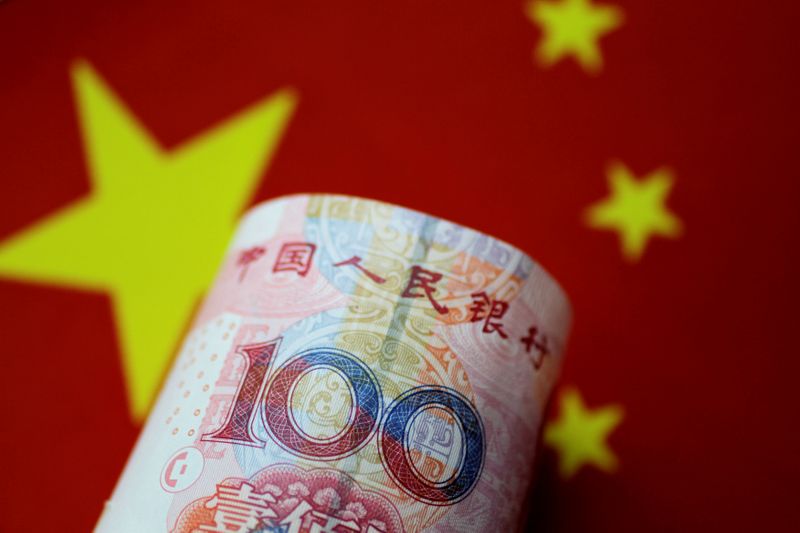BEIJING/SHANGHAI (Reuters) -China’s currency regulator has been conducting a rare survey of banks and companies to ask about their risk management processes and ability to handle volatility in the yuan, three banking and policy sources told Reuters.
The State Administration of Foreign Exchange (SAFE) surveyed “how companies in different sectors managed their FX exposure and how they used hedging tools”, said one of the sources, who was directly involved in the survey.
The SAFE did not give a reason for the survey, but its timing suggests Chinese authorities are girding for currency volatility as the Federal Reserve and other major central banks wean economies off massive pandemic-era stimulus, and are keen to avoid a repeat of the violent yuan slide during U.S. tightening in 2015-2016.
Two other sources, also directly involved, said the survey conducted this month was different from the routine quarterly questionnaire that banks submit on their proprietary trading books.
This survey was similar to ones done in 2014 and 2016, the sources said, with the banks being surveyed asked to provide details about how they managed companies’ expectations and how they had helped corporate clients to hedge their FX exposures.
The SAFE had not responded to Reuters’ request for comments at the time of publication of this article.
China’s yuan is nearly 11% higher than in May last year, supported by heavy foreign investment inflows into mainland stocks and bonds and a huge current account surplus. Its gains appear heavily stretched, with its trade-weighted index at 5-1/2-year highs.
Economists have of late begun to expect some weakness in the currency as a regulatory crackdown hurts China’s stock markets, exports slow and policymakers loosen credit conditions to support a slowing economy.
Marco Sun, chief financial markets analyst at MUFG Bank based in Shanghai, said the survey seemed to indicate regulators were preparing for a “potentially heavier storm” as the Fed moves towards tapering policy.
It was also likely a progress check following SAFE’s prodding of banks earlier in the year to educate their corporate clients about hedging and volatility, he added.
China’s financial regulators have in recent months been cajoling companies to protect themselves against currency risks as the central bank gradually loosens its reins on the yuan.
The People’s Bank of China has repeatedly warned of the impact of policy normalisation in major developed markets on emerging market capital flows and currencies.
There has however been little clarity on when and how quickly the Fed will taper policy this time.
In remarks to the annual Jackson Hole economic conference last Friday, Fed Chair Jerome Powell affirmed an ongoing U.S. economic recovery, but offered no signals on when the U.S. central bank plans to cut its asset purchases beyond saying it could be “this year”.
(Reporting by Xu Jing and Ryan Woo in Beijing, Winni Zhou in Shanghai; Editing by Vidya Ranganathan and Jan Harvey)






















